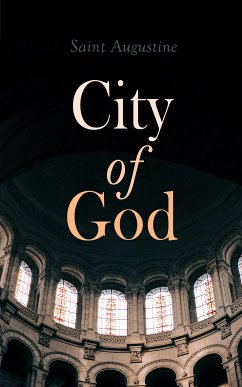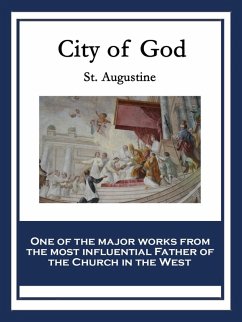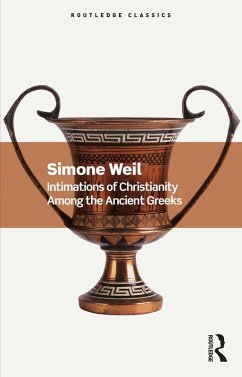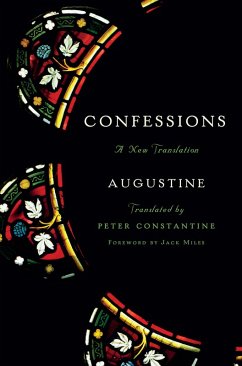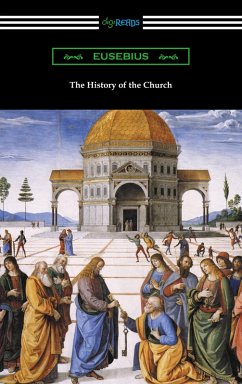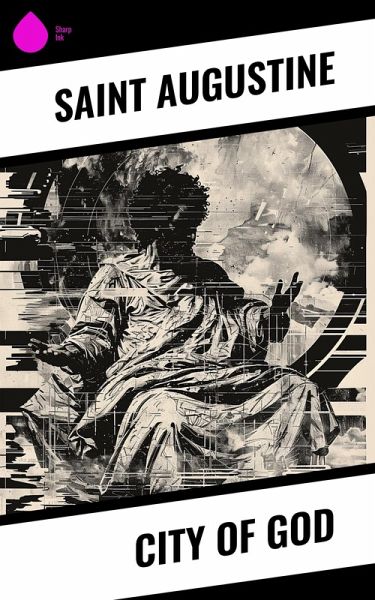
City of God (eBook, ePUB)

PAYBACK Punkte
0 °P sammeln!
In "City of God," Saint Augustine presents a profound theological and philosophical treatise that distinguishes between the earthly city and the City of God. Written in the wake of the sack of Rome in 410 AD, Augustine's work critiques contemporary pagan beliefs and articulates a Christian worldview that emphasizes the eternal over the temporal. Employing a blend of historical narrative and insightful allegory, Augustine explores themes such as divine providence, human existence, and the nature of justice, crafting a complex theology that has resonated through the ages, blending classical rhet...
In "City of God," Saint Augustine presents a profound theological and philosophical treatise that distinguishes between the earthly city and the City of God. Written in the wake of the sack of Rome in 410 AD, Augustine's work critiques contemporary pagan beliefs and articulates a Christian worldview that emphasizes the eternal over the temporal. Employing a blend of historical narrative and insightful allegory, Augustine explores themes such as divine providence, human existence, and the nature of justice, crafting a complex theology that has resonated through the ages, blending classical rhetoric with Christian doctrine. Saint Augustine, a pivotal figure in early Christian thought, drew upon his diverse background as a philosopher, rhetorician, and ultimately, a bishop. His own tumultuous spiritual journey, marked by a search for truth and meaning, culminated in his conversion to Christianity. These experiences deeply inform his writing, providing a rich context in which he grapples with the relationship between faith and reason, particularly in light of the sociopolitical turmoil of his time. "City of God" remains an essential read for anyone interested in the foundations of Western thought and Christian theology. Its exploration of faith amidst crisis serves as both a historical document and a timely reminder of the enduring struggle between earthly power and divine authority, making it a vital addition to the library of scholars and lay readers alike.
Dieser Download kann aus rechtlichen Gründen nur mit Rechnungsadresse in A, B, BG, CY, CZ, D, DK, EW, E, FIN, F, GR, HR, H, IRL, I, LT, L, LR, M, NL, PL, P, R, S, SLO, SK ausgeliefert werden.




